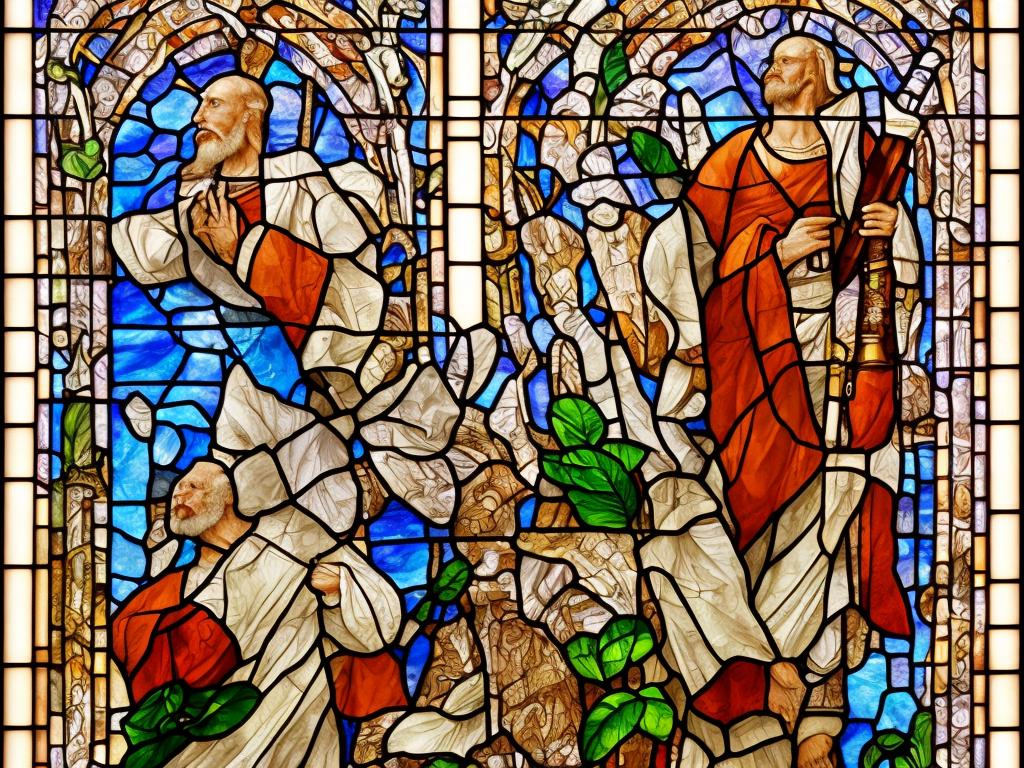
Christianity is one of the oldest religions in the world, with millions of followers across the globe. While there are several branches of Christianity, Roman Catholicism and Protestantism are the most prominent and influential. These two branches of Christianity share a common ancestry, but they differ in several aspects of their theology, worship, and practices. In this article, we will explore the difference between Protestant and Catholic Christianity.
The Origins of Protestantism and Catholicism
In the early days of Christianity, there was only one church that was led by the Bishop of Rome or the Pope. This church became known as the Roman Catholic Church. In the 16th century, a group of people known as the Reformers challenged the teachings and practices of the Catholic Church, leading to the birth of the Protestant Church. The Protestant movement was started by influential figures such as Martin Luther, who wrote the famous 95 Theses, and John Calvin, who was the founder of Calvinism.
The Theological Differences Between Protestantism and Catholicism
Theological differences between Protestantism and Catholicism are a significant cause of the divisions between these two branches of Christianity. One of the most fundamental differences is the belief in the authority of the Bible. Protestants subscribe to the doctrine of sola scriptura, which means that the Bible is the only source of Christian doctrine. In contrast, the Catholic Church aligns with the belief in the Bible's equal authority and tradition as the two pillars of Christian teachings.
Another significant theological difference between Protestants and Catholics is the concept of salvation. Catholics believe that salvation can be achieved through good works, sacraments, and faith. Protestants, on the other hand, believe in the concept of sola fide, which stipulates that salvation is by faith alone, and good works are a consequence of that faith.
In terms of creating a personal relationship with God, Protestant churches are seen as emphasizing a personal relationship with God, while the Catholic Church is focused on institutional, communal worship. While both emphasize worship of God as the primary goal, Protestants believe in a direct relationship with God through faith, whereas Catholicism emphasizes the need for communion with the Church for salvation.
Worship Practices in Protestantism and Catholicism
Worship practices differ significantly between Protestants and Catholics. Catholic worship is centered on the celebration of the Eucharist, which is seen as the re-enactment of Jesus' last supper with his disciples. Catholics believe that the bread and wine are transformed into the literal body and blood of Christ, a belief known as transubstantiation.
Protestant worship, on the other hand, is more focused on the sermon and preaching of the Word of God. Protestant services tend to be less ritualistic than those of the Catholic Church and usually emphasize a greater participation from the congregation through prayer, singing of songs, or hymns, and scripture reading.
Leadership Structures in Protestantism and Catholicism
The leadership structures of Protestant churches and Catholic churches are different. In Catholicism, the Pope is the ultimate authority in the Church, and the clergy are organized according to the hierarchical order of bishops, priests, and deacons. The Catholic Church holds the belief that the Bishop of Rome, or the Pope, is the successor of Saint Peter, who was one of the Twelve Apostles of Christ. The Pope is seen as a spiritual leader and the vicar of Christ on earth, and he is responsible for ordaining new clergy and making theological decisions for the entire Church.
In contrast, Protestantism has a more decentralized leadership structure in which individual churches have autonomy and are led by pastors and elders who are elected by the congregation to serve as spiritual leaders of their church.
The differences in Leadership structures is also reflected in how the two churches handle changes to the doctrines or beliefs held concerning theological positions. In the Catholic Church, changes are made through encyclicals, dogma, and church doctrine renewals but always with Pope as the main authority. For Protestants, changes are effected via negotiations and conferences between church leaders.
Conclusion
In conclusion, while Protestants and Catholics share the same roots, there are significant differences between them in terms of theology, worship, leadership, and practices. These differences have led to centuries of divisions between the two churches. Despite the differences, both Catholicism and Protestantism remain vital branches of Christianity that have shaped the world's religious and cultural history. The important thing to note is that both religions focus on worshipping God, and that the differences between them should not be such a strong divisive factor amongst worshippers and believers.
 Self-Instruct
Self-Instruct